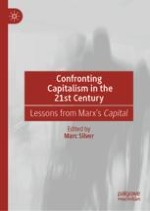2020 | OriginalPaper | Buchkapitel
10. The Ambiguous Role of China’s Collective Land Ownership Under Global Capitalism
verfasst von : Xiangjing Chen
Erschienen in: Confronting Capitalism in the 21st Century
Aktivieren Sie unsere intelligente Suche, um passende Fachinhalte oder Patente zu finden.
Wählen Sie Textabschnitte aus um mit Künstlicher Intelligenz passenden Patente zu finden. powered by
Markieren Sie Textabschnitte, um KI-gestützt weitere passende Inhalte zu finden. powered by
